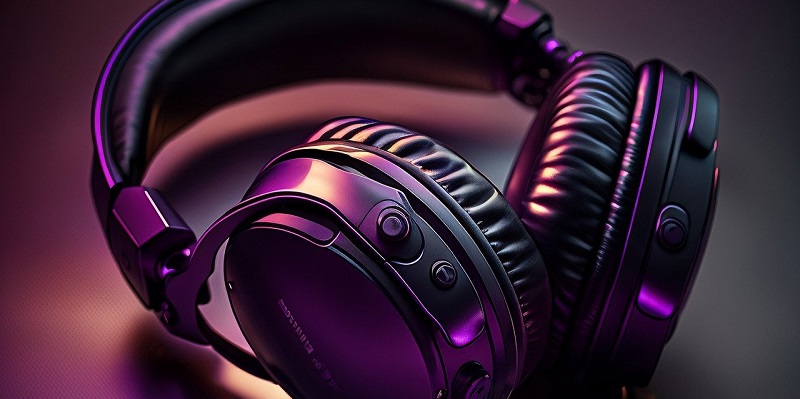The advent of Artificial Intelligence (AI) has revolutionized numerous industries, and the music industry is no exception. With AI-powered tools and apps emerging in the realm of music production, there are both exciting opportunities and concerning implications to consider. This article delves into the impact of AI on the music industry, exploring its effects on musicians, streaming services, and the creative process, as well as delving into concerns surrounding cultural appropriation and inadequate copyright laws.
AI’s Impact on the Music Industry
AI has undoubtedly ushered in a world where music has become more accessible and abundant. However, this surplus of music comes at a price for musicians, as they may find themselves cast aside in an industry where attention is predominantly given to the technology that creates the music rather than the creators themselves. This shift in focus could result in less recognition, compensation, and opportunities for musicians in the long run.
Furthermore, streaming services stand to benefit financially from the rise of AI in the music industry. As these AI-driven platforms increase in popularity, streaming giants could reap more profits while musicians earn significantly less. This unbalanced distribution of income threatens to exacerbate the already-existing financial challenges faced by many artists, potentially leading to a less sustainable ecosystem for musicians.
Additionally, the proliferation of AI in music production raises concerns about the dehumanization of the creative process. With algorithms taking over tasks such as track analysis, audio balancing, and noise removal, the human touch and artistic intuition unique to musicians and producers might be overshadowed by efficiency and automation. The risk of losing the emotional depth and creative exploration that humans bring to music looms large unless a careful balance is struck.
AI-driven apps for music production
Various AI-driven apps have emerged, aiming to streamline music production processes and enhance the quality of output. Examples like Landr, Cryo Mix, and iZotope’s Neutron utilize AI algorithms to analyze tracks, balance audio levels, and remove noise automatically. While these apps undoubtedly reduce the workload for professional mixers and producers, they also allow professionals to efficiently complete less lucrative tasks and focus on higher-paying commissions. Thus, a symbiotic relationship between skilled musicians and AI tools can be fostered.
AI’s role in transforming music
Gone are the days when changing the sound of an instrument required extensive studio work or expensive equipment. AI-powered “tone transfer” algorithms, employed in apps like Mawf, enable musicians to transform the sound of one instrument into another with relative ease. However, this technological advancement poses a challenge in terms of cultural appropriation. Musicians may inadvertently upload tracks that draw on cultural elements not their own or imitate existing artists too closely. Such situations highlight the need for improved awareness, sensitivity, and diligence to avoid ethically problematic creations.
Inadequacy of Current Copyright Laws
The rise of AI in music creation poses significant challenges for copyright regulations. Existing U.S. copyright laws are often contradictory and ill-equipped to address the nuances of AI-produced music. Determining authorship, ownership, and infringement in an AI-driven landscape remains a complex task. It is imperative to establish robust regulations that consider the unique aspects of AI-generated music to protect artists, encourage creativity, and prevent misuse.
Students’ perception of AI’s impact on music
Among musicians and aspiring artists, concerns about an AI takeover of music have become pervasive. Many worry about being left behind or rendered irrelevant in a future where AI prevails in creative endeavors. However, it is essential to strike a balanced perspective, understanding that AI can complement human creativity rather than replace it entirely. Embracing AI tools as collaborators can lead to new, innovative musical possibilities while preserving the essence of human expression.
Optimism toward musical AI, with precautions
Despite the potential pitfalls, there is cause for optimism in the realm of musical AI. When used responsibly and ethically, AI can help unlock new avenues of creative expression for musicians. By leveraging AI-driven tools, artists can streamline their workflow, experiment with novel sounds, and tap into previously unexplored musical territories. However, it is crucial to navigate these advancements carefully, avoiding cultural appropriation, promoting inclusivity, and advocating for copyright regulations that protect both creators and their creations.
As AI continues to reshape the music industry, the landscape undergoes tremendous transformation. While AI-driven apps and tools offer efficiency and convenience for musicians and producers, they also raise concerns regarding the devaluation of musicians, financial implications for streaming services, and the potential dehumanization of the creative process. Issues such as cultural appropriation and inadequate copyright laws further complicate the path forward. Yet, with thoughtful consideration, collaboration, and proper regulation, the integration of AI into the music industry can usher in a future of innovative possibilities while maintaining respect for artists’ craftsmanship and originality.

